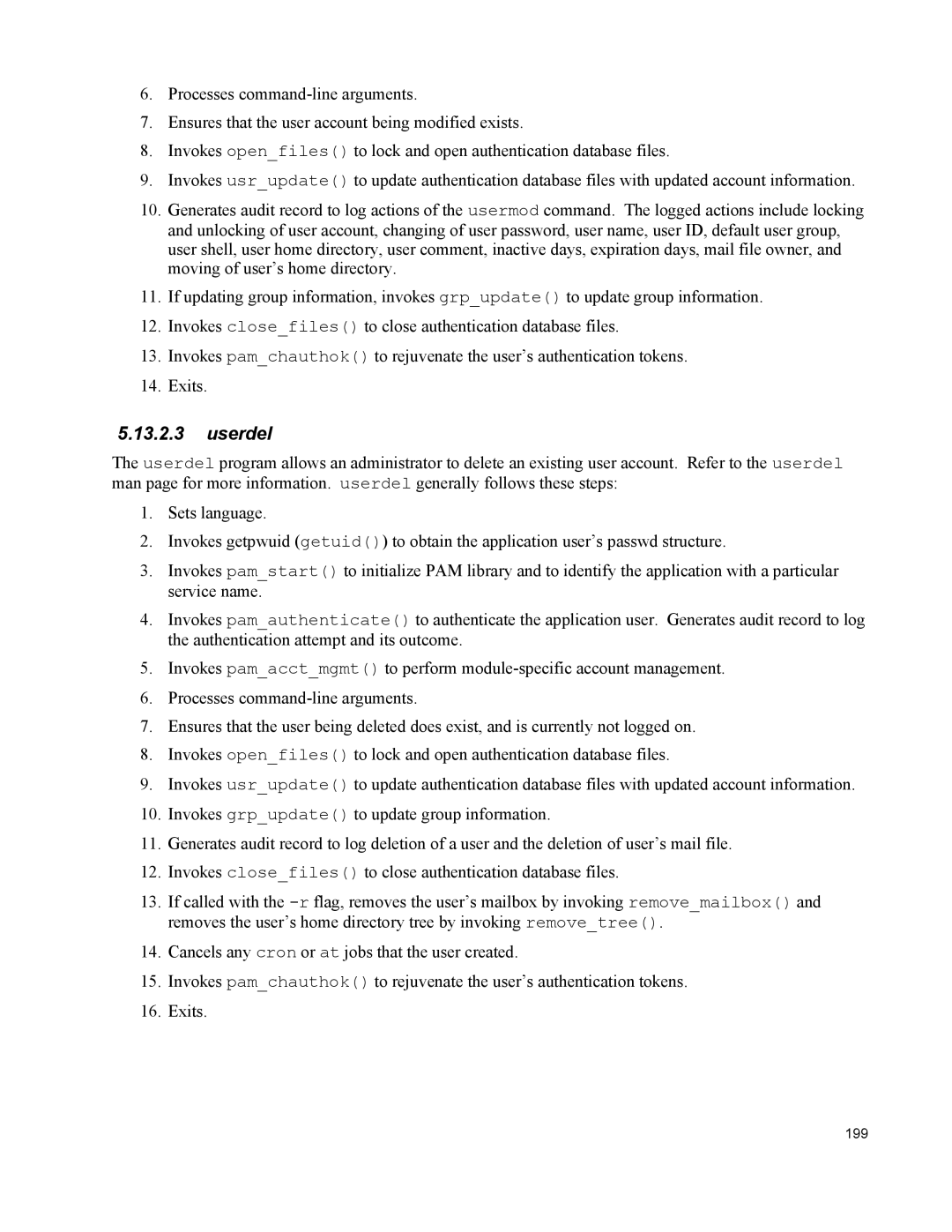6.Processes
7.Ensures that the user account being modified exists.
8.Invokes open_files() to lock and open authentication database files.
9.Invokes usr_update() to update authentication database files with updated account information.
10.Generates audit record to log actions of the usermod command. The logged actions include locking and unlocking of user account, changing of user password, user name, user ID, default user group, user shell, user home directory, user comment, inactive days, expiration days, mail file owner, and moving of user’s home directory.
11.If updating group information, invokes grp_update() to update group information.
12.Invokes close_files() to close authentication database files.
13.Invokes pam_chauthok() to rejuvenate the user’s authentication tokens.
14.Exits.
5.13.2.3userdel
The userdel program allows an administrator to delete an existing user account. Refer to the userdel man page for more information. userdel generally follows these steps:
1.Sets language.
2.Invokes getpwuid (getuid()) to obtain the application user’s passwd structure.
3.Invokes pam_start() to initialize PAM library and to identify the application with a particular service name.
4.Invokes pam_authenticate() to authenticate the application user. Generates audit record to log the authentication attempt and its outcome.
5.Invokes pam_acct_mgmt() to perform
6.Processes
7.Ensures that the user being deleted does exist, and is currently not logged on.
8.Invokes open_files() to lock and open authentication database files.
9.Invokes usr_update() to update authentication database files with updated account information.
10.Invokes grp_update() to update group information.
11.Generates audit record to log deletion of a user and the deletion of user’s mail file.
12.Invokes close_files() to close authentication database files.
13.If called with the
14.Cancels any cron or at jobs that the user created.
15.Invokes pam_chauthok() to rejuvenate the user’s authentication tokens.
16.Exits.
199
